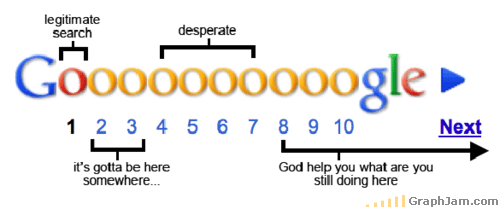8 Questions Google asks when it gets to web copy
What’s the number one goal of any website owner? Nine times out of ten, it’s high search engine rankings – and hopefully a whole lot of new customers.
Question is, how do you get your website to climb up the rankings? Let’s ask Google.
Google updates, authority, and why content is still king
Google loves high-quality websites that deliver a great user experience, and the latest Google Updates (or changes in the way Google ranks websites) have caused a stir in the SEO community.
The take-home message from Google is simple: from now on, it’s all about authority.
Now, what does Google mean by authority? It’s simple: to increase your ranking nowadays your website needs to become a go-to place for reliable information, videos, and downloads that people love. If web users don’t think much of your website, don’t expect Google to reward you with a high ranking.
Can we get to the 8 points already?
OK, here’s the part you’ve been waiting for. Google is rooting out bad websites – but they are willing to tell us how to create a great website. Now, what does their search engine look for when it hits your pages?
Here are eight questions Google ‘asks itself’ when it ranks websites – we should all be asking ourselves the same questions about the sites we own and fill with content.
1. Haven’t I seen this content somewhere before?
If the content you create isn’t original, Google won’t be impressed – it’s as simple as that. Content creators can draw inspiration from other sites, but word-for-word copying and pasting is a serious no-no.
2. Is this advice actually any good?
Most web users turn to Google when they need to solve a problem or fill a need – in other words, they are looking for good advice. If your website gets a reputation for giving awesome advice that helps people to solve their problems, your rankings will soar.
3. What kind of grammar is this anyway?
Bad grammar (or is that poor grammar?) is one sure way to put off your readers. Google sees a link between sloppy writing and low page rankings, so proof reading every bit of content is a must.
4. Is anyone going to enjoy reading this?
The days of writing outdated SEO copy – content that was written for machines to read anyway – are officially over. Google penalises pages that try to ‘game the system’ by stuffing as many keywords as possible into every line. If it’s not fun to read, Google won’t like it.
5. Is there new and exciting info on this page?
If you provide your readers with how-to guides and updates based on new research and ideas, you’ll boost your authority. Google likes new ideas, so keep them coming.
6. Do I like this website enough to bookmark or subscribe?
If your content excites and delights, people will bookmark your page and subscribe to your blog or newsletter. They’ll probably follow you on social media sites too – this is all great for page rankings.
7. Is this content good enough to publish?
A blog isn’t an excuse for sub-standard content. If your content is good enough to be published in a magazine or news website, you’re on the right track. And yes, Google reads the news.
8. Why am I seeing ads instead of content?
Your content should take up 90% of each page – the other 10% can be filled with all the ads and calls-to-action you want.
At the end of the day, all Google wants to see is great content fulfilling a need – if you need help creating this great content, then get in touch!

